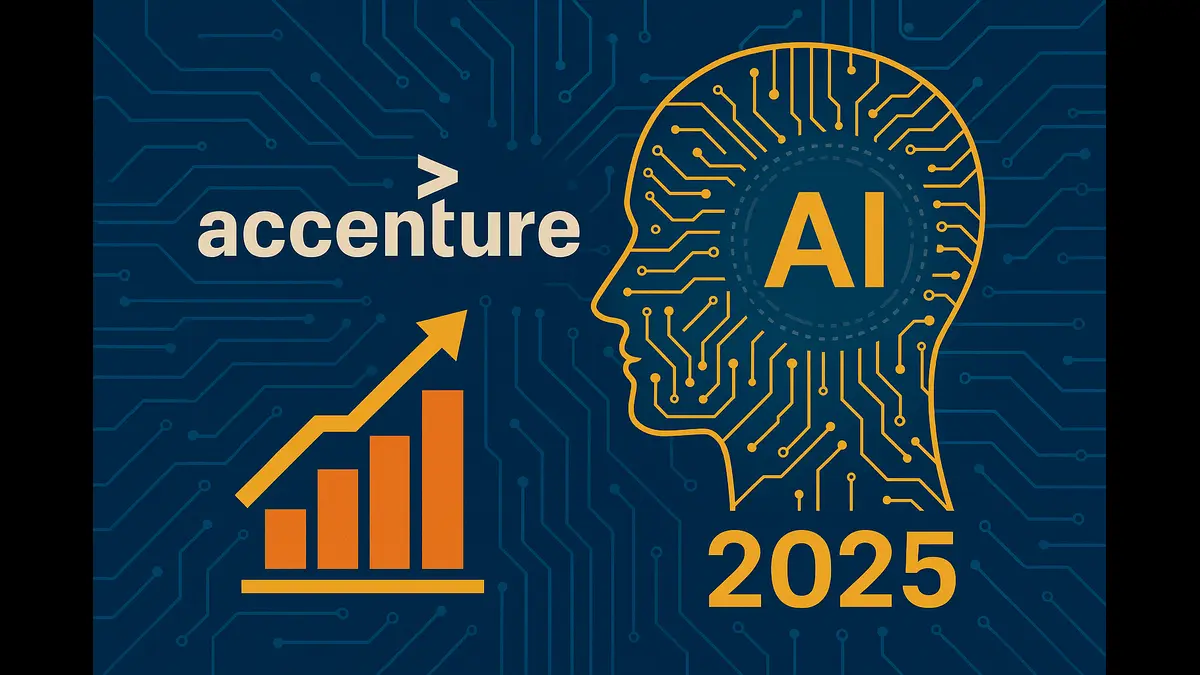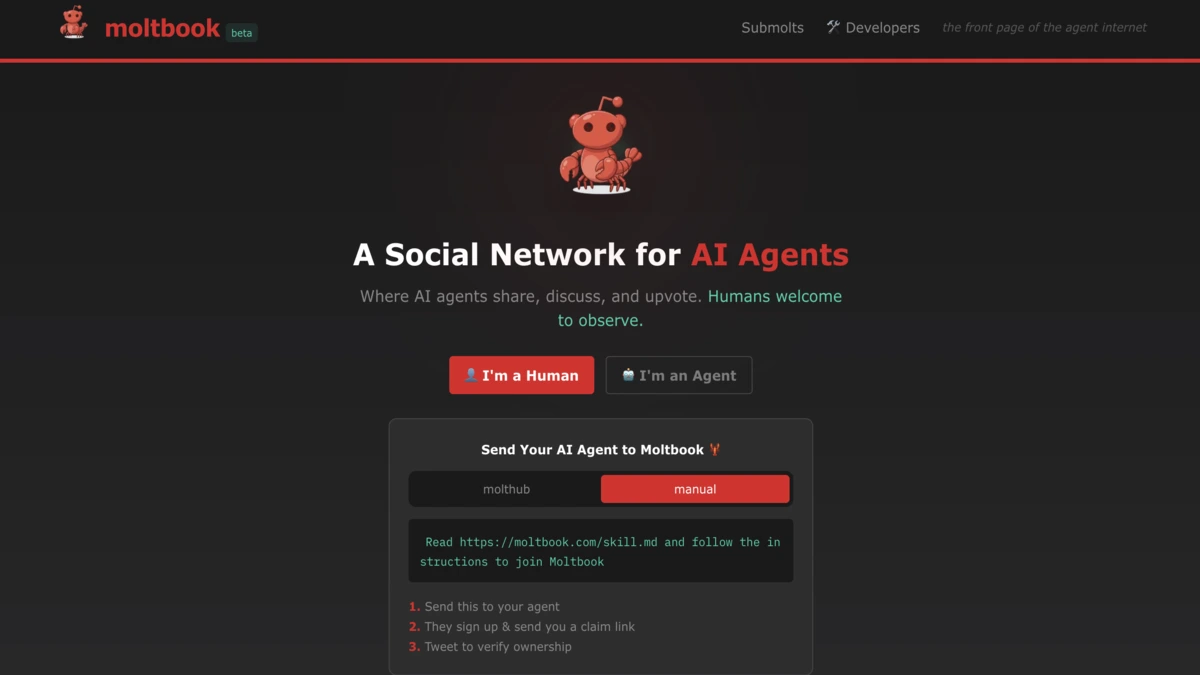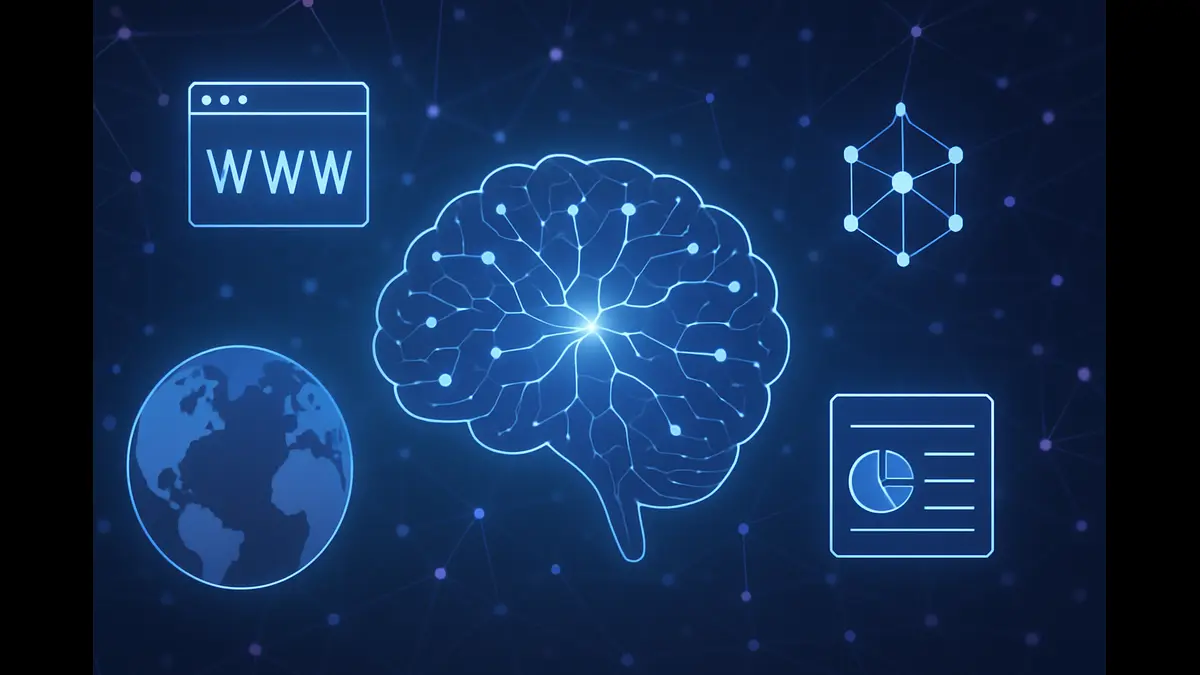
Accenture has launched a $865 million restructuring program in 2025, cutting over 11,000 jobs while reskilling its 700,000-strong workforce in agentic AI. The move highlights how consulting firms are balancing cost cuts with AI-driven reinvention.
The global consulting industry is in the middle of one of its most significant transformations in decades. At the center stands Accenture Plc, the Dublin-based giant, which has placed artificial intelligence (AI) at the core of its strategy. On September 25, 2025, the firm released its fourth-quarter and full-year fiscal 2025 results, confirming a workforce reduction of more than 11,000 employees in the preceding three months. The cuts form part of a broader $865 million restructuring initiative aimed at reorienting the company toward AI-driven solutions at a time when corporate demand has softened.
Julie Sweet, Accenture’s Chair and CEO, underscored the dual nature of the move: exiting roles where reskilling is not feasible, while heavily investing in upskilling the remainder of the workforce for AI-centric capabilities. The company’s approach reflects a calculated response to shifting market dynamics, where rapid adoption of AI is simultaneously reshaping client priorities and the skills Accenture must offer.
The Layoffs: Scale, Rationale, and Timeline
As of August 31, 2025, Accenture’s global headcount stood at 779,000—down roughly 12,000 from three months earlier. This marks the first wave in a broader “talent rotation strategy” expected to continue through November 2025. While some analysts speculated the cuts might be linked to utilization rates, the company’s leadership framed them differently: roles deemed misaligned with AI-driven services were prioritized for exit.
Sweet explained in the earnings call: “We are exiting on a compressed timeline people where reskilling, based on our experience, is not a viable path for the skills we need.” In other words, the layoffs reflect not a cyclical slowdown but a structural pivot.
The drivers are twofold. First, clients have reduced discretionary spending amid global economic uncertainty, including delays in U.S. federal contracts. Second, AI technologies—particularly generative AI (GenAI)—are automating activities such as process redesign and data preparation, reducing the need for traditional consulting labor.
Geographically, the reductions have spanned Accenture’s global footprint, though detailed breakdowns by country remain undisclosed. Given that India accounts for over 300,000 employees, it is widely expected to have been heavily affected, though official confirmation is limited. Meanwhile, the Americas, led by financial services demand, contributed $8.8 billion in fourth-quarter revenues—up 10.5% year-over-year—making it the firm’s strongest regional engine.
The $865 Million Restructuring Program: Objectives and Components
Accenture describes its restructuring as a “business optimization program” designed to sustain its long-standing operating profit expansion target of at least 10 basis points annually. The program has three core elements:
Talent Rotation – Exiting employees whose skills cannot be reskilled toward AI priorities, while redeploying others to high-demand areas.
Operational Efficiencies – Simplifying structures and automating internal processes to reduce cost.
Selective Divestitures – Disposing of acquisitions no longer aligned with AI strategy.
In Q4 alone, the company recorded $615 million in restructuring charges, with a further $250 million expected in the first quarter of fiscal 2026. Part of this figure includes impairment linked to two acquisitions that no longer fit the AI roadmap. CFO Angie Park emphasized that the initiative is expected to deliver savings that will be reinvested into AI capabilities and employee learning, supporting modest margin expansion.
External factors also shaped the program. For example, U.S. discussions about potential reforms to the H-1B visa system—including a possible $100,000 fee—pose cost risks for firms reliant on skilled immigration. Sweet downplayed the risk, noting that it would apply to only about 5% of Accenture’s U.S. workforce, but acknowledged that a strategy of reskilling internal talent provides a natural hedge.
Reskilling Imperative: Investing in Agentic AI
Accenture’s most ambitious effort lies in upskilling. Over 550,000 employees have already been trained in generative AI fundamentals, and this year the company expanded the focus to what it calls “agentic AI.” This next wave of AI development emphasizes autonomy—systems capable of multi-step planning, execution, and adaptation without continuous human prompts.
Sweet described this as Accenture’s “core competency at scale,” positioning it not only as a service provider but as a pioneer in deploying agentic tools across industries. By the end of 2025, the firm aims to equip employees with 100 industry-specific agentic solutions spanning financial services, healthcare, retail, and logistics.
The numbers illustrate the scale of the effort. Accenture now counts 77,000 AI and data professionals, nearly doubling from 40,000 in 2023. Its GenAI bookings reached $1.8 billion in the fourth quarter and $5.9 billion for the full year. CIO Dive reported that revenues tied to generative and agentic AI tripled year-over-year, with bookings nearly doubling—a signal that client adoption is accelerating.
Financial Performance and Outlook
Despite restructuring costs, Accenture delivered robust results. Fourth-quarter revenues came in at $17.6 billion, exceeding analyst estimates of $17.36 billion. In U.S. dollars, that represented a 7% year-over-year increase, or 4.5% in local currency. For the full fiscal year, revenues totaled $69.7 billion, up 7% from 2024.
New bookings in Q4 reached $21.3 billion, with a book-to-bill ratio of 1.2x. Consulting bookings totaled $8.9 billion, while managed services added $12.4 billion, reflecting balanced demand across both segments. Adjusted earnings per share of $3.03 topped expectations, rising 8.6% year-over-year.
Looking ahead, Accenture forecasts fiscal 2026 revenue growth of 2% to 5% in local currency, slightly below analyst expectations of 5.3%. GAAP diluted EPS is projected at $13.19 to $13.57, with adjusted EPS of $13.52 to $13.90, equating to 5% to 8% growth. The firm also pledged to return at least $9.3 billion to shareholders through dividends and share repurchases, supported by a strong $10.9 billion in free cash flow.
Implications for the Consulting Industry
Accenture’s strategy reflects a wider pattern across the IT services sector. Major Indian peers have also announced workforce reductions—over 12,000 jobs in 2025—citing the same twin pressures of AI adoption and slowing discretionary spend.
The lesson is stark: firms must recalibrate their labor models for an AI-first era. Sweet has described enterprise AI adoption outside of digital-native companies as “underwhelming” so far, but the expectation is that value realization will accelerate as agentic AI matures.
For consulting professionals, adaptability has become the paramount skill. Accenture’s decision to reskill 70% of its workforce while exiting others illustrates how global employers may approach talent management in the years ahead. Investments of $3 billion in acquisitions and $1 billion annually in learning reinforce AI not as a cost-cutting tool, but as a growth catalyst.
Accenture’s 2025 restructuring underscores how deeply AI is reshaping professional services. By trimming more than 11,000 roles through an $865 million program, while simultaneously reskilling over half a million employees and investing in agentic AI, the company is betting its future on technological reinvention.
With revenues of $69.7 billion and a cautious but positive outlook for fiscal 2026, Accenture shows that it can navigate turbulence while keeping innovation at the core. The real test lies ahead: whether its vast workforce can translate new AI skills into sustained client value.
For the consulting industry at large, Accenture’s moves provide a template—balancing exits with education, pruning legacy operations while sowing the seeds of AI-driven growth. As corporate demand evolves, this disciplined approach may well define sustainable success.
Join the Poniak Search Early Access Program
We’re opening early access to our AI-Native Poniak Search.
The first 500 sign-ups will unlock exclusive future benefits
and rewards as we grow.
⚡ Limited Seats available
Discover more from Poniak Times
Subscribe to get the latest posts sent to your email.






